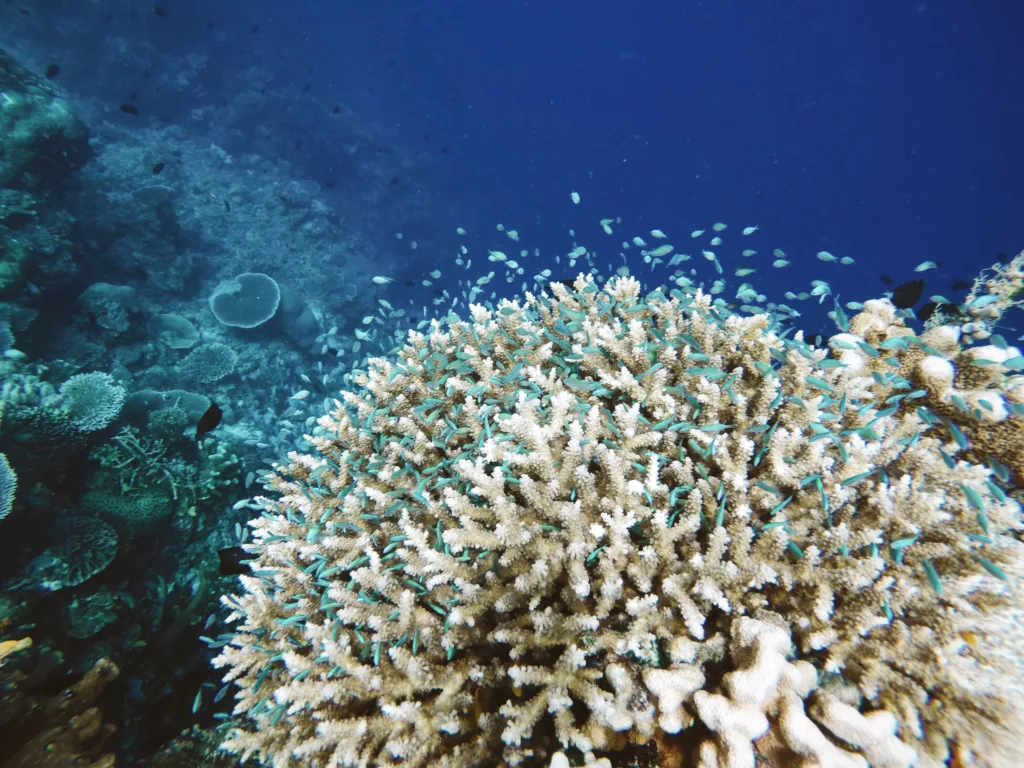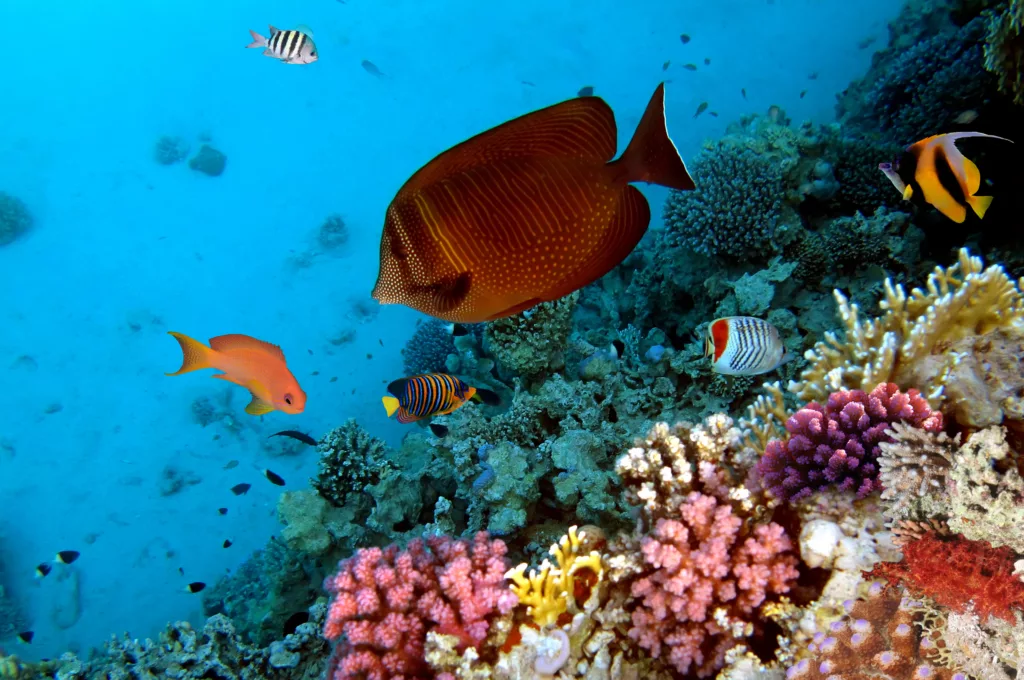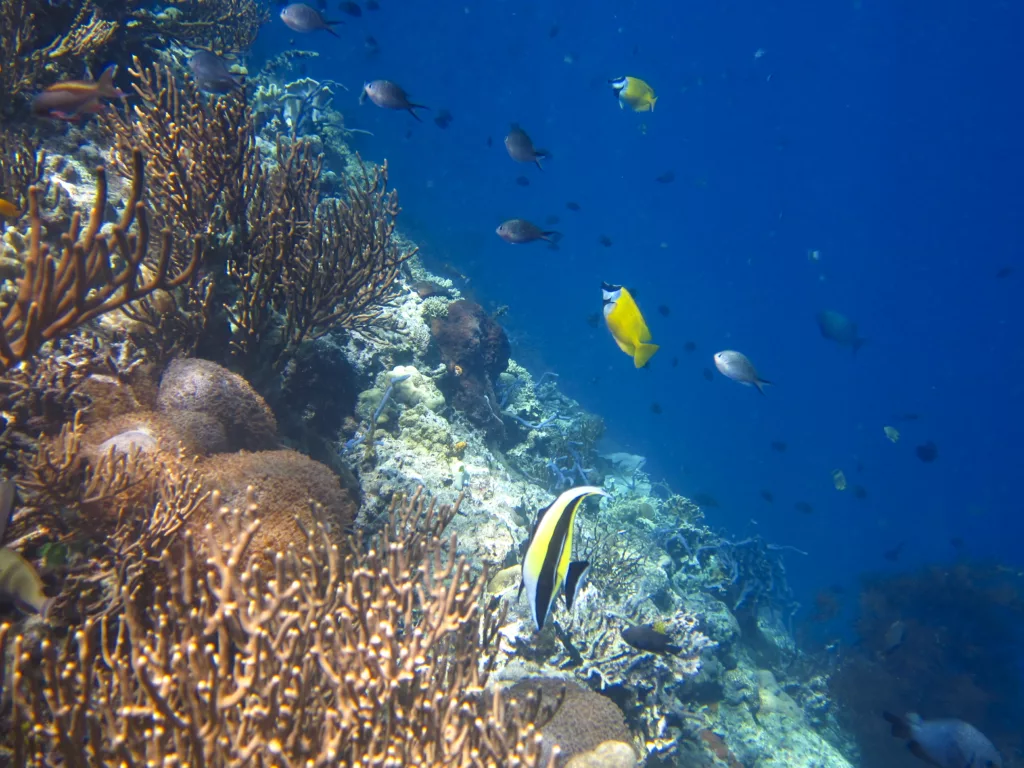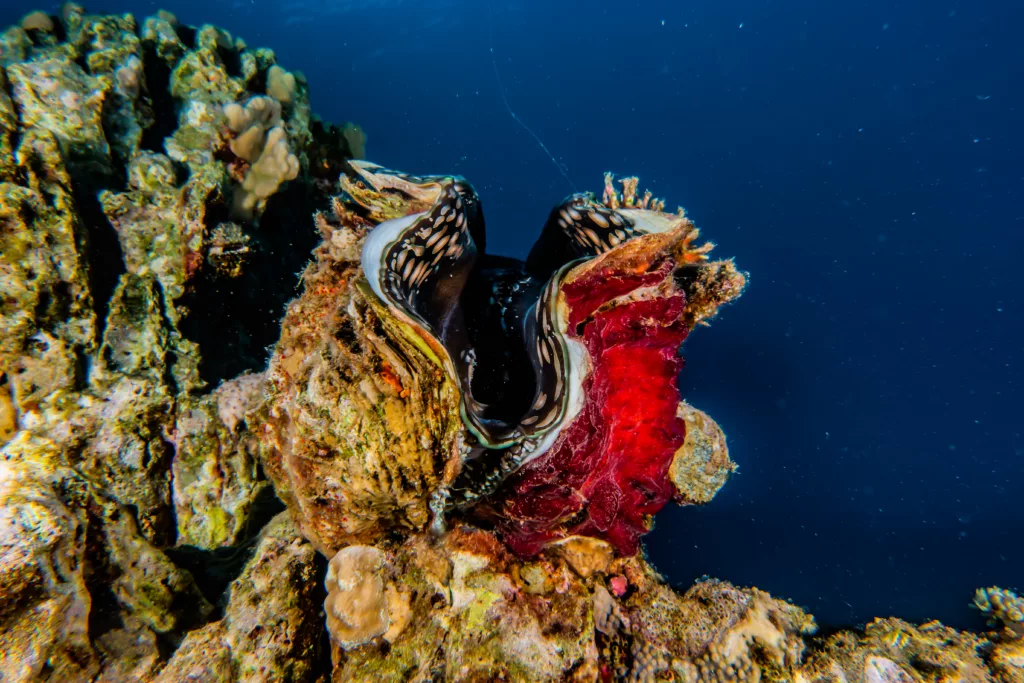Diving into the deep blue waters is not just about exploring the vivid marine life or enjoying the serene silence of the underwater world. It’s also an eye-opening journey that reveals the grim reality of ocean pollution, notably plastic waste. As devotees of the ocean realm, particularly enthusiasts of scuba diving, diving in Bali, and other underwater adventures in Indonesia, it’s crucial we advocate for the marine environment that hosts these wondrous experiences. In this blog post, we’ll explore five effortless swaps you can make to lessen your environmental footprint and help preserve the integrity of our oceanic treasures. Let’s dive deep and emerge better for our blue planet!
1. Reusing Water Bottles: Your New Travel Companion
One of the simplest yet most effective switches you can make is trading single-use plastic bottles for reusable ones. This is especially critical when traveling to diving hotspots. Whether you’re gearing up for a dive in Bali or planning a dive in one of Indonesia’s must-visit dive sites, carrying a reusable water bottle reduces reliance on plastic. It’s a step towards protecting the pristine nature of sites where the negative impact of plastic waste is already visible. Furthermore, reusing water bottles is not just about reducing waste; it’s also about embracing a lifestyle that values sustainability. By choosing a reusable water bottle, you are participating in a global movement that seeks to reduce the environmental burden of disposable plastic. Every refill means one less plastic bottle in landfills, oceans, or waste streams. It also sets a positive example for other travelers and locals alike, encouraging them to think and act in environmentally responsible ways. Besides, many reusable bottles today come with stylish designs and advanced insulation properties, keeping your water colder or your coffee hotter for longer, making them a perfect companion for any adventure.
2. Sunscreen That Loves the Sea as Much as You Do

This eco-friendly sunscreen is specially formulated with reef-safe ingredients, ensuring that while you explore the vibrant underwater world, you’re not causing harm to the delicate marine ecosystems. Designed to provide robust UV protection without toxic chemicals, our sunscreen helps prevent coral bleaching and water pollution. Whether you’re diving among the colorful corals of Bali or swimming with majestic manta rays, this sunscreen lets you enjoy your underwater journey with peace of mind, knowing you’re protecting both your skin and the ocean you love. Dive in responsibly and make every splash count with our environmentally conscious sunscreen.
3. Dive Against Debris: Be Part of the Solution

Scuba diving offers an incredible opportunity not only to witness the beauty of the underwater world but also to actively engage in its preservation. Participation in ‘Dive Against Debris’ events, a global initiative where divers collect underwater litter during their dives, is a proactive approach to ocean conservation. These dives not only clean up our seas but also provide valuable data on pollution that can influence policy decisions. Indonesia, famed for its spectacular dive sites, frequently hosts these events, making it a perfect locale for environmentally conscious divers. Partaking in such initiatives not only helps clear the oceans of waste but also raises public awareness about the importance of maintaining clean marine environments. Every item removed from the ocean means one less piece of debris threatening marine life and coral structures. Moreover, Dive Against Debris dives often involve data gathering, contributing to research that shapes better waste management policies and practices. Engaging in these activities fosters a sense of community and collective responsibility among divers, amplifying the impact of individual efforts through coordinated action.
4. Sustainable Swag: Choose Eco-Friendly Diving Gear

From wetsuits to dive bags, the gear you choose can also impact the ocean. Many diving accessories are made from non-biodegradable materials that can be harmful if discarded improperly. Look for products made from recycled materials or companies that take an active stance on environmental responsibility. Investing in high-quality, durable dive gear not only minimizes ocean litter but also sets a standard for the industry. When traveling or diving in Indonesia, sourcing gear from eco-conscious manufacturers adds an additional layer of protection for the ocean. Moreover, supporting brands committed to sustainability can lead to broader changes in the industry, pushing more companies to consider the environmental impact of their products. Eco-friendly gear often incorporates innovative materials that are less harmful to the environment and equally efficient. Choosing such products does not only reflect a commitment to ocean conservation but also helps in promoting a market shift towards more sustainable practices. Divers equipped with eco-friendly gear enjoy the beauty of the underwater world while actively contributing to its preservation, creating a virtuous cycle of sustainability.
5. Educate, Engage, and Inspire: The Ripple Effect
The ultimate change begins with awareness. By educating yourself and others about the impact of plastic pollution and advocating for sustainable practices within the diving community, you begin to create waves of change. Share your knowledge and experiences at dive sites, through social media, or at community meetings. Inspiring others to make small changes, like using mesh bags instead of plastic ones or choosing sustainable seafood, not only helps protect marine life but also preserves the dive sites for future generations. Starting these conversations can lead to increased consciousness and action on issues like ocean pollution and overfishing. Education translates into empowerment; when people understand the consequences of their actions, they are more likely to change them. Engaging with local communities, especially in areas heavily dependent on marine resources, can lead to more sustainable local practices. Whether it’s through organizing cleanup drives, conducting educational workshops, or simply by setting an example with your own actions, every effort counts. Thus, the ripple effects of education and engagement can spread far and wide, leading to significant environmental benefits globally.
Turning the Tide Together
The journey from being merely a visitor of the ocean to becoming its steward is both noble and essential. Through simple, achievable swaps in our daily and diving practices, we can significantly diminish our environmental footprint and ensure that the seas remain vibrant and healthy. Be it through tiny steps like using a reusable water bottle while diving in Bali, or larger strides like participating in marine clean-up campaigns, each action contributes to a collective effort to preserve our underwater paradises. Let’s turn the tide together, for our oceans teem with life, not plastic.


The blog post is a dynamic blend of adventures and environmental awareness. It’s inspiring how you’ve offered practical solutions for maintaining our marine environments while enjoying diving. The idea of ‘Dive Against Debris’ is truly commendable.
I must say, I’m really impressed with this blog post! The tips on reducing plastic waste and promoting sustainability in diving are not only practical but also inspiring. As someone who loves scuba diving, it’s great to see people taking action to protect our oceans.
Hi Emily, thank you for your kind words about our blog post! We’re thrilled to hear that you found the tips inspiring and practical. At Pebble & Fins, we believe that small changes can add up to make a big difference in protecting our oceans. If you have any questions or would like to learn more about how you can get involved in ocean conservation efforts, please don’t hesitate to reach out. We’re always here to help. Additionally, if you’d like to stay updated on our latest blog posts and news, feel free to subscribe to our newsletter or follow us on social media. We look forward to hearing from you soon!
I completely agree with the importance of educating ourselves and others about ocean conservation. By sharing our knowledge and experiences, we can make a real difference in protecting marine life. This post is a great resource for anyone looking to learn more about sustainable diving practices.
Thank you for your thoughtful comment, Ahmed! We’re thrilled to hear that our post resonated with you. At Pebble and Fins, we believe that education is a powerful tool in promoting ocean conservation. By sharing knowledge and experiences, we can inspire others to take action and make a positive impact on the marine environment. We appreciate your enthusiasm for sustainable diving practices and hope that our blog posts continue to provide valuable insights and resources for you and like-minded individuals.
I love the idea of using reusable water bottles while diving! It’s such an easy and effective way to reduce plastic waste. I also appreciate the emphasis on choosing eco-friendly dive gear and supporting sustainable brands. This post has definitely inspired me to make some changes in my own diving practices.
Hi Sofia, thank you for sharing your thoughts on our blog post! We’re thrilled to hear that the idea of using reusable water bottles while diving resonates with you. At Pebble and Fins, we believe that small actions can add up to make a big difference in protecting our oceans. If you have any questions or would like to learn more about sustainable dive practices, please don’t hesitate to reach out. You can contact us at [email protected] or call +62 857 3891 8262. We’d be happy to help. Thanks again for your enthusiasm and commitment to ocean conservation!